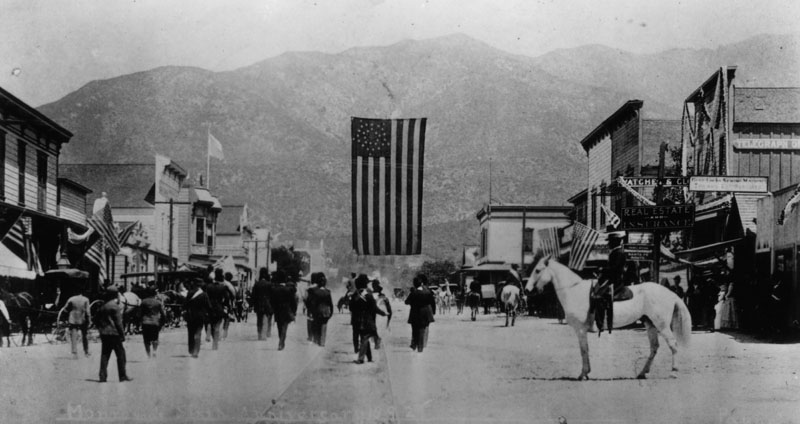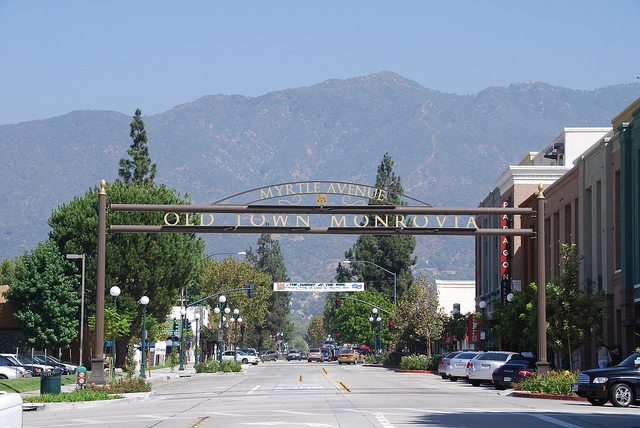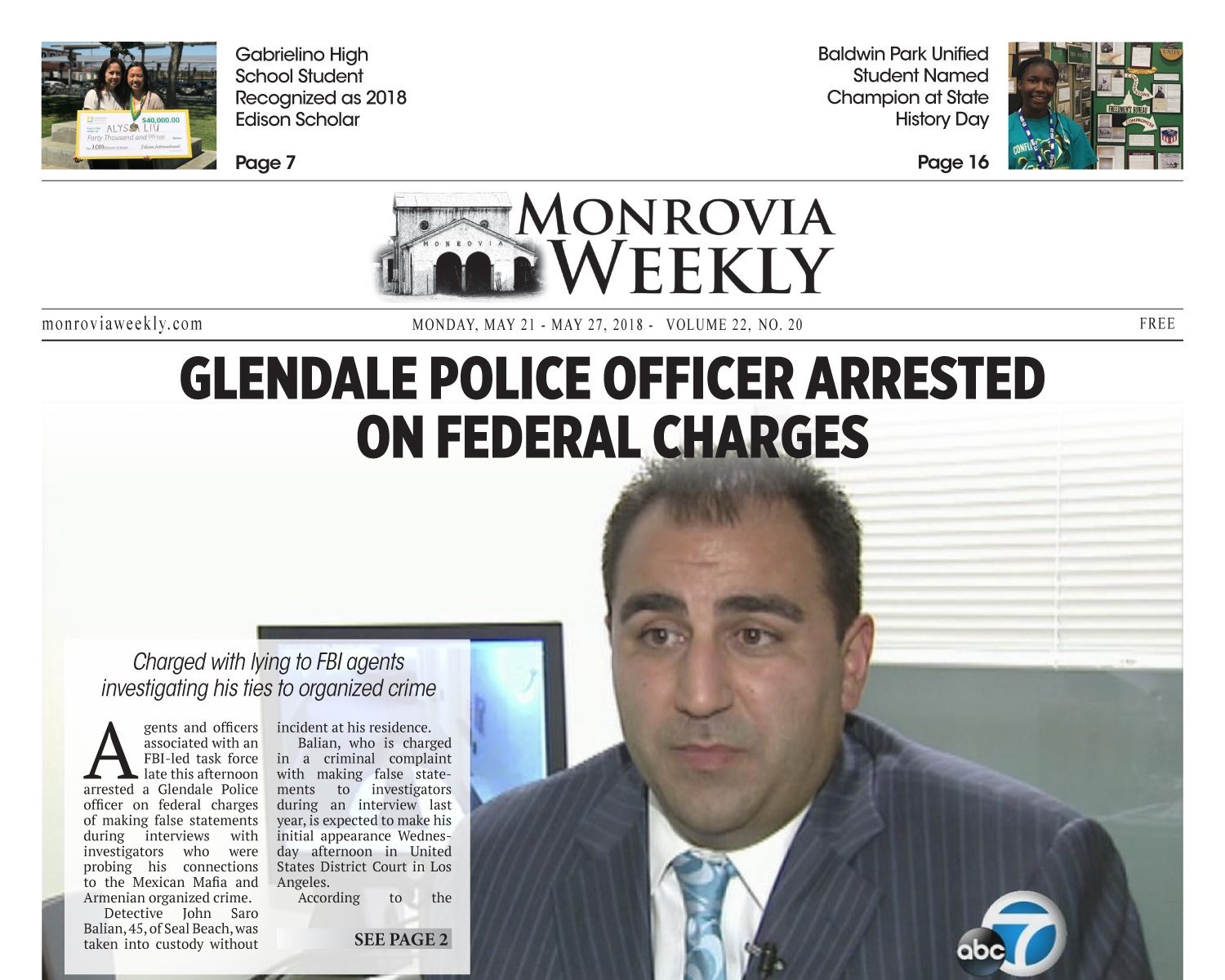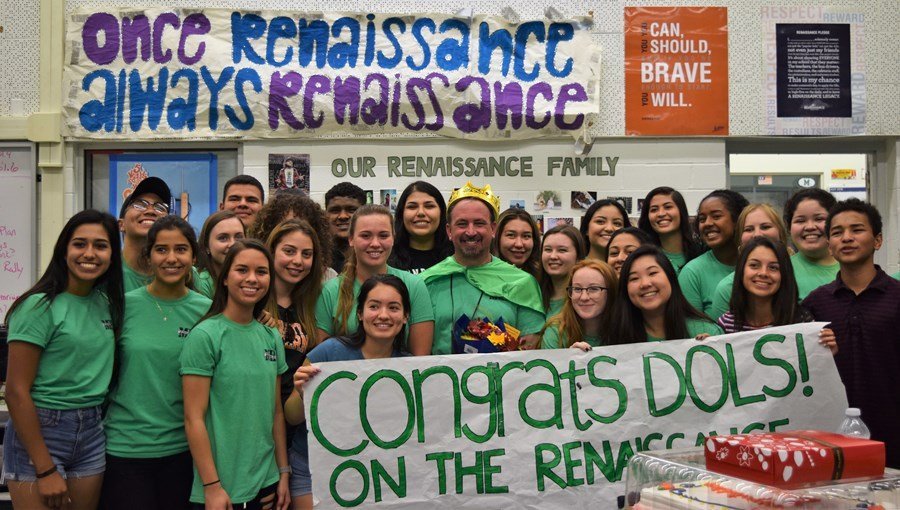
By Susan Motander
In 1883 five men purchased land from Lucky Baldwin’s Rancho Santa Anita. William Newton Monroe, one of those five, purchased 240 acres for $30,000. Monroe was the son of a successful Midwestern farmer but made his own money in railroad engineering (the sort that plans, not those that drive the engines). Ultimately, he settled in Los Angeles even serving a term on the city council from 1880-1881.
It was doubtless through this position that he came into contact with Edward F. Spence, who was the mayor of Los Angeles at that time, John D. Bicknell, a lawyer and ultimately a judge, and James F. Crank, a businessman and financier. These men, along with J. F. Falvey, would become the founders of Monrovia.
Falvey worked for Baldwin at that time, and as it was well known that Lucky Baldwin often paid his employees with land rather than cash, many assume that the land he contributed to the consortium came from that source.
In 1886, the five formed the Monrovia Land and Water Company and began selling lots on May 17, 1886. The town was centered at the corner of Myrtle Avenue (named for one of Monroe’s daughters) and what was then Orange Avenue (now Colorado Boulevard). The first lot sold went to a widow from Duarte and was located at the corner of Lemon and Myrtle Avenues.
The first tract consisted of 600 lots (500 feet by 160 feet). All these were located in the area now bounded by Lime on the north, what is now Canyon on the east, half a block below Walnut on the south and Magnolia on the west. In laying out the town, the founders named the east/west streets for trees and the north/south ones for flowers (I know the Myrtle is a tree, but it is a flowering tree).
It is likely that the founders selected this land for their new town based on the knowledge most of them had with railroads. The land they selected was ideal for a right of way, and in 1887 the Los Angeles and San Gabriel Railroad was established. Ultimately, this railroad was sold to Santa Fe and the railroad came through town.
By the end of 1887 the community was continuing to grow, but a threat was arising: Demon Alcohol, a saloon, was considering opening in the area. The community petitioned Los Angeles County for incorporation and in December of 1887 the Charter was approved. The first act of the new council was to prohibit the sale of alcohol. The first Mayor of the city was William Newton Monroe.
At that time, Monrovia became only the fourth incorporated town in Los Angeles County after Los Angeles itself, Pasadena, and Santa Monica.






